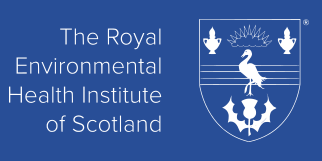The learning outcomes for the Elementary Infection Prevention and Control Course are based on the objectives listed below which the course presenter will fully explain.

The Elementary Infection Prevention and Control course has been independently rated on the Scottish Credit Qualifications Framework (SCQF) at 5 with 1 credit. This course gives an understanding of the importance of personal vigilance and high standards of care in breaking the chain of infection.
Learning Outcomes
The learning outcomes for the Elementary Infection Prevention and Control Course are based on the objectives listed below which the course presenter will fully explain.
All objectives to be prefixed by the words: The expected outcome is that the course participants will be able to:
Understand the infrastructure for infection control within the working environment, including the need for policies and procedures
Define the role of the employer and employee in preventing and controlling infection
Describe the ways of preventing the transmission of micro-organisms, with particular reference to hand hygiene
Define what is meant by ‘the chain of infection
’Understand the importance of personal vigilance and high standards of care in breaking the chain of infection
6Outline the factors that increase susceptibility to infection
Give examples of a range of factors influencing the multiplication of micro-organisms
Understand the means by which micro-organisms can be transmitted to a host
Understand how the Healthcare Associated Infections, and in particular, Coronavirus (COVID-19), meticillin-resistant Staphylococcus Aureus (MRSA) and Clostridium difficile, and Norovirus should be managed
Understand the rational for separating people in certain circumstances
Understand the purpose of and the need for personal protective clothing and equipment.
Understand the best practice relating to:
Prevention of occupational exposure to infection
Management of blood and body fluids spillages
Safe disposal of waste, including sharps
Safe handling, transport and processing of linen
Environmental control
Understand the need for staff/visitor/client compliance with set organisational policies
Be aware of the law regarding public health and control of infection
Be aware of the role of the relevant regulatory and advisory agencies
Course Syallubus
General Introduction
Micro-organisms and other causes of infection
Reservoirs and sources
Portals of entry and exit
Method of spread and mode of transmission
Susceptible hosts
Risk factors for infection
Standard Infection Control Precautions and Health & Safety Measures
Hand hygiene – for staff, visitors and service users, including how to do it when outdoors. Supporting children to be independent hand washers
Personal protective clothing and equipment
Prevention of occupational exposure to infection
Management of blood and body-fluid spillages including safe handling of incontinence pads and nappies
Management of care equipment including commodes, changing mats, potties and children’s toilet seats.
Supporting people to eat and drink and the management of equipment including reusable bottles with sports caps
Environmental control including infection control in the home (home care) and outdoors. How to safely deal with pets. How to minimise the risk of infection with gardening (composting/vegetables patches) How to minimise the risk of infection with outdoor play
Safe disposal of waste, clinical waste and sharps including incontinence pads and nappies
Safe handling, transport and processing of linen including soiled clothes to be returned home. Or soiled linens in a home care setting
Appropriate case placement
Putting it all together – Action Planning
Legislation and guidance
Policies and procedures including restrictions (home care/care at home)
Projects in infection control
Barriers to effective infection control
Using knowledge to reduce the incidence of infection
A route to enhanced competence in preventing healthcare associated infection including childcare or homecare associated infections
About REHIS
The Royal Environmental Health Institute of Scotland, often referred to as REHIS, was established in 1983 following the merger of the Royal Sanitary Association of Scotland (founded 1875) and the Scottish Institute of Environmental Health (founded 1973). The Institute was incorporated by Royal Charter in 2001.
The Institute is a registered Scottish charity No. SC009406.
The Institute awards the qualification which allows a person to practice as an Environmental Health Officer (EHO) in Scotland. Under the Royal Charter and Scheme of Continuing Professional Development it awards Chartered Environmental Health Officer status to eligible members.
The Institute is a long established awarding body in Scotland for a variety of REHIS qualifications, many of which have been independently credit rated on the Scottish Credit and Qualifications Framework (SCQF).
The Institute is a founder Member of the International Federation of Environmental Health.
The objects for which the Institute is established, which are contained in its Royal Charter, are, for the benefit of the community to promote the advancement of Environmental Health by
stimulating general interest in and disseminating knowledge concerning Environmental Health;
promoting education and training in matters relating to Environmental Health;
maintaining, by examination or otherwise, high standards of professional practice and conduct on the part of Environmental Health Officers in Scotland.
Membership is open to all persons with an interest in Environmental Health in its widest sense.
The affairs of the Institute are managed by a Council, elected annually by members.
© 2025 coursetakers.com All Rights Reserved. Terms and Conditions of use | Privacy Policy